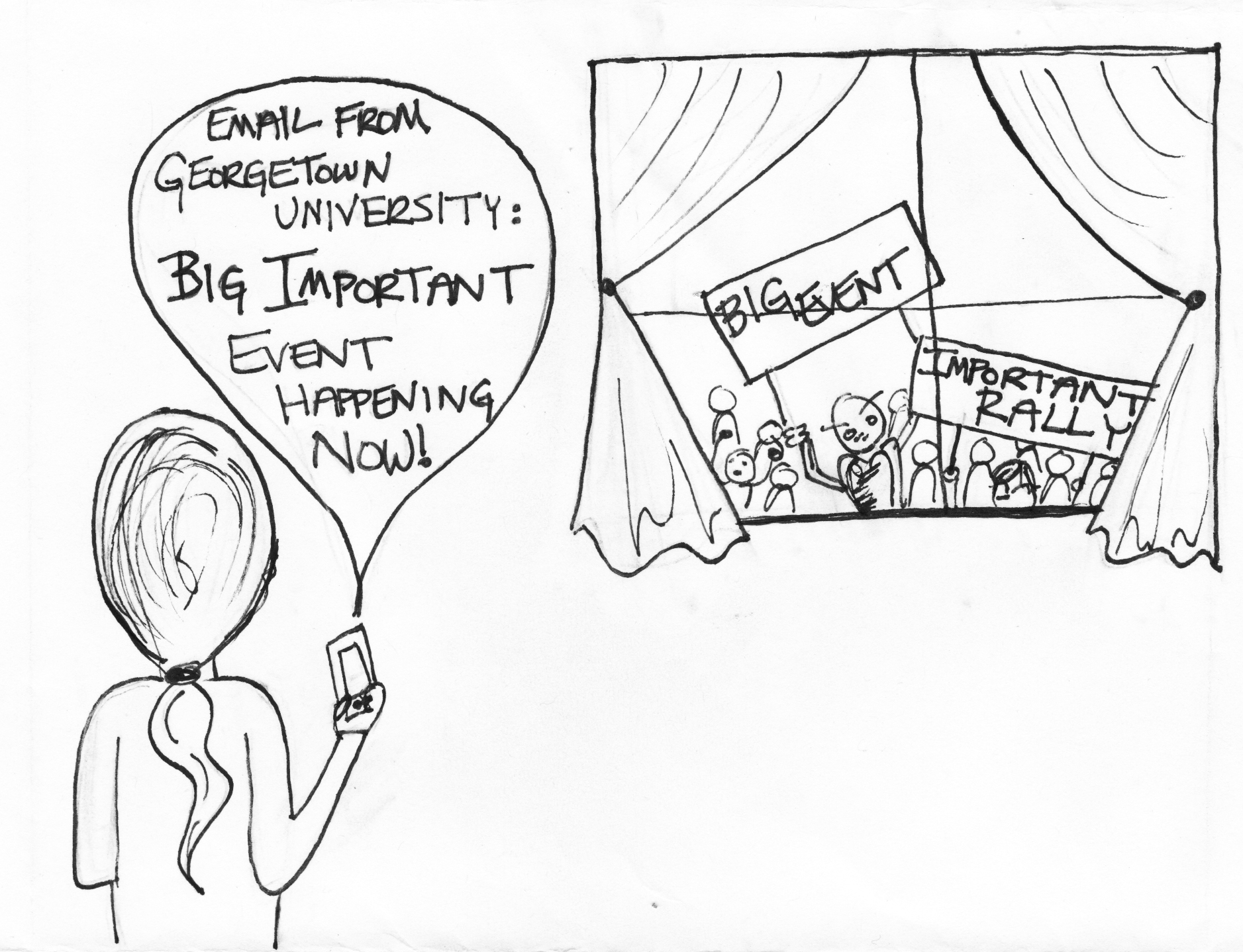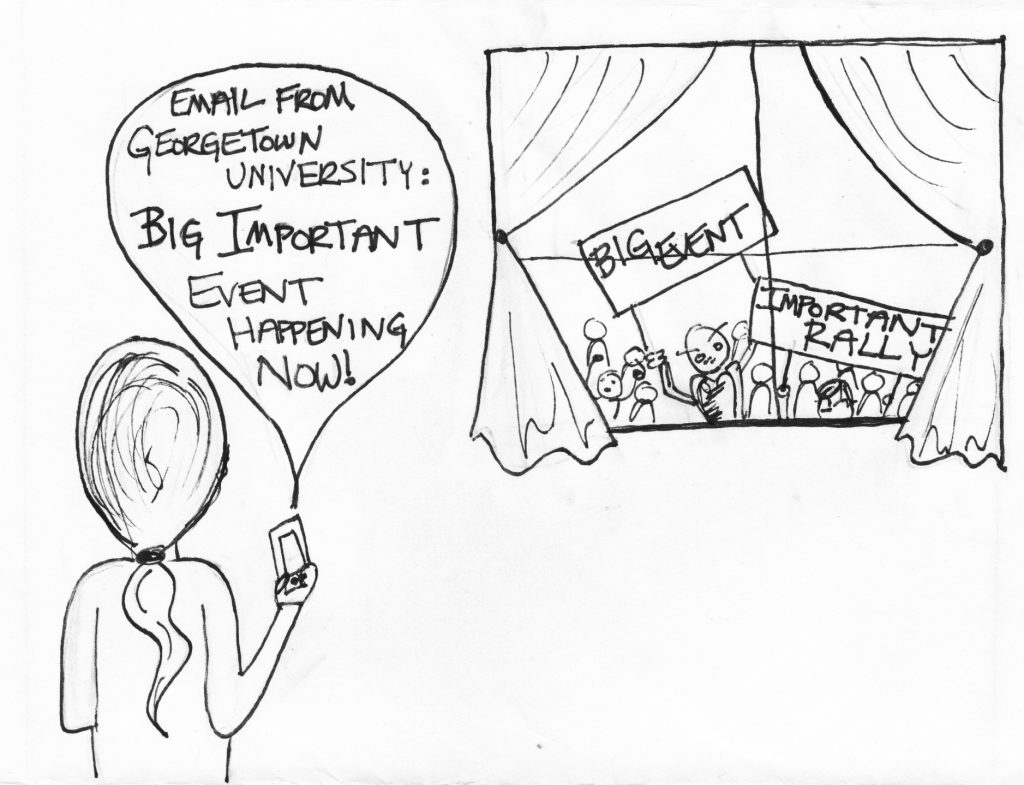On Thursday, December 1st, the Working Group on Slavery, Memory, and Reconciliation hosted a Teach-In on Georgetown’s history with slavery in Gaston Hall. According to the event’s Facebook page, the purpose of the Teach-In was to increase familiarity with Georgetown’s relationship to slavery in its past.
This Editorial Board fully endorses the Teach-In. With recent events, such as the renaming of Mulledy and McSherry Hall still fresh in mind, the Teach-In is a valuable method for educating the campus population about the relationship between Georgetown and slavery. This is undoubtedly key for understanding Georgetown’s history.
Where this Board takes issue with the event is how it was promoted by the University. While the Facebook event was created well ahead of time, an email about the event did not go out to the entire campus population until the day before the event. The Facebook event was a smart use of social media to promote the event, but the University must take the initiative earlier on informing all of campus. It is unacceptable to be notified only a day in advance of such an event’s occurrence.
Moreover, this past week, GUSA voted against adding a referendum to the February GUSA Executive Ballot, which would have called for the student body to vote on Georgetown’s divestment from fossil fuels. The referendum had been called for by GU Fossil Free (GUFF) in a YouTube video that was posted on Nov. 2nd.
This Board does not agree with GUSA’s decision to vote against the referendum on divestment. The GUSA acronym stands for the Georgetown University Student Association, and its primary function must be to act as an organization that represents the student body. Voting against the referendum expressly defeats GUSA’s main purpose.
The reasoning that GUSA gave, according to Speaker of the Senate Enushe Khan (MSB’ 17), was that, “Most senators seemed to lean towards the idea that the referendum ballot should not be used as a polling tool, since this particular referendum does not seem to have a predictable voting outcome.” However, GUSA’s decision fails to account for the 2000+ signatures that the initiative received when it was released to the entire student body. For almost a third of the student body to sign the petition shows a significant interest from the larger population. Voting against the referendum defeats the purpose of GUSA.
Both of these examples are indications of the status of student engagement on Georgetown’s campus. Georgetown has extremely outspoken individual student groups; however, the majority of campus is too easily shut out of important dialogues. While this Board does not always agree with their methods, groups like GUFF and the Working Group on Slavery, Memory, and Reconciliation contain examples of passionate members of the Georgetown community mobilizing around an issue that they feel strongly about.
These groups, and the University, must focus on expanding student engagement. Any decision regarding issues as important to Georgetown’s past as slavery, or as important to Georgetown’s future as divestment, must incorporate as many nuanced views as possible. That is the priority of a campus dialogue.
Georgetown’s student body is a passionate and outspoken one. It is now the responsibility of the University to effectively engage the body, and ensure that dialogues in the future involve all students and productive for the future of Georgetown.







